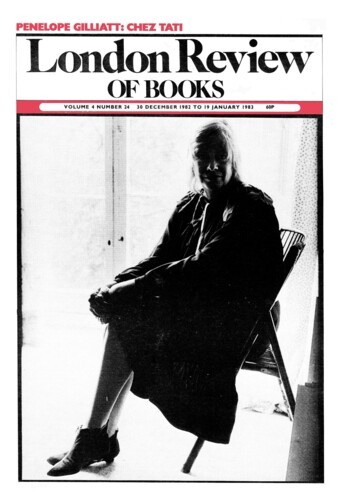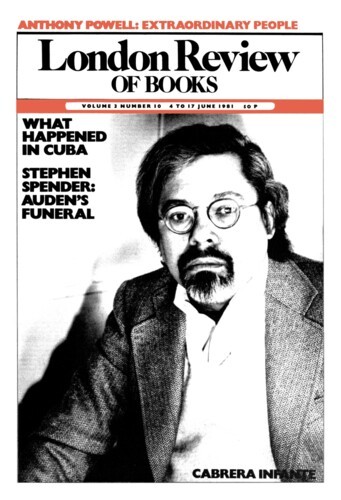Vanishings
Seamus Deane, 30 December 1982
John Montague’s Selected Poems reinforce the impression left by his individual volumes: that of a great talent growing increasingly apprehensive at the conditions in which it must be exercised. Since 1958, when his first volume Forms of Exile appeared, he has been renowned for a certain elegance and formality of phrasing, and for a nervous delicacy of rhythm: these bestowing upon his poems an air of fragility which has to survive the often desperate occasions which initiate them. This discontinuity between the form of the poems and their environment can be partially understood as a product of modern Irish conditions. There are two main versions of contemporary Ireland in his work. The first is that of the dilapidated Republic of the Fifties and Sixties, first clerical, then commercial; the second is that of the broken North of the last two decades, violent and bitter, but touched by the promise that crisis can bring. Beyond these are other, vanished Irelands which nevertheless retain a considerable force in his imagination: the Ireland of Yeats and the Revival, the Ireland of his childhood in the North, the old Gaelic Ireland of Tyrone. All of them are finally disappointing. They encumber his art, although he struggles to make them liberate it. The problem is deepened by the fact that these territories do give release to many of the contemporaries whose presence in these domains shadows his own – Kinsella in the South, Heaney, Mahon, Longley and others in the North. A pathfinder who discovers that the territories he broke into have been settled by others, he is left to forage where others feed.


